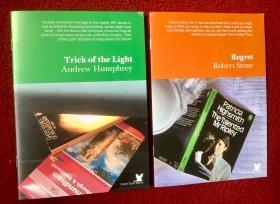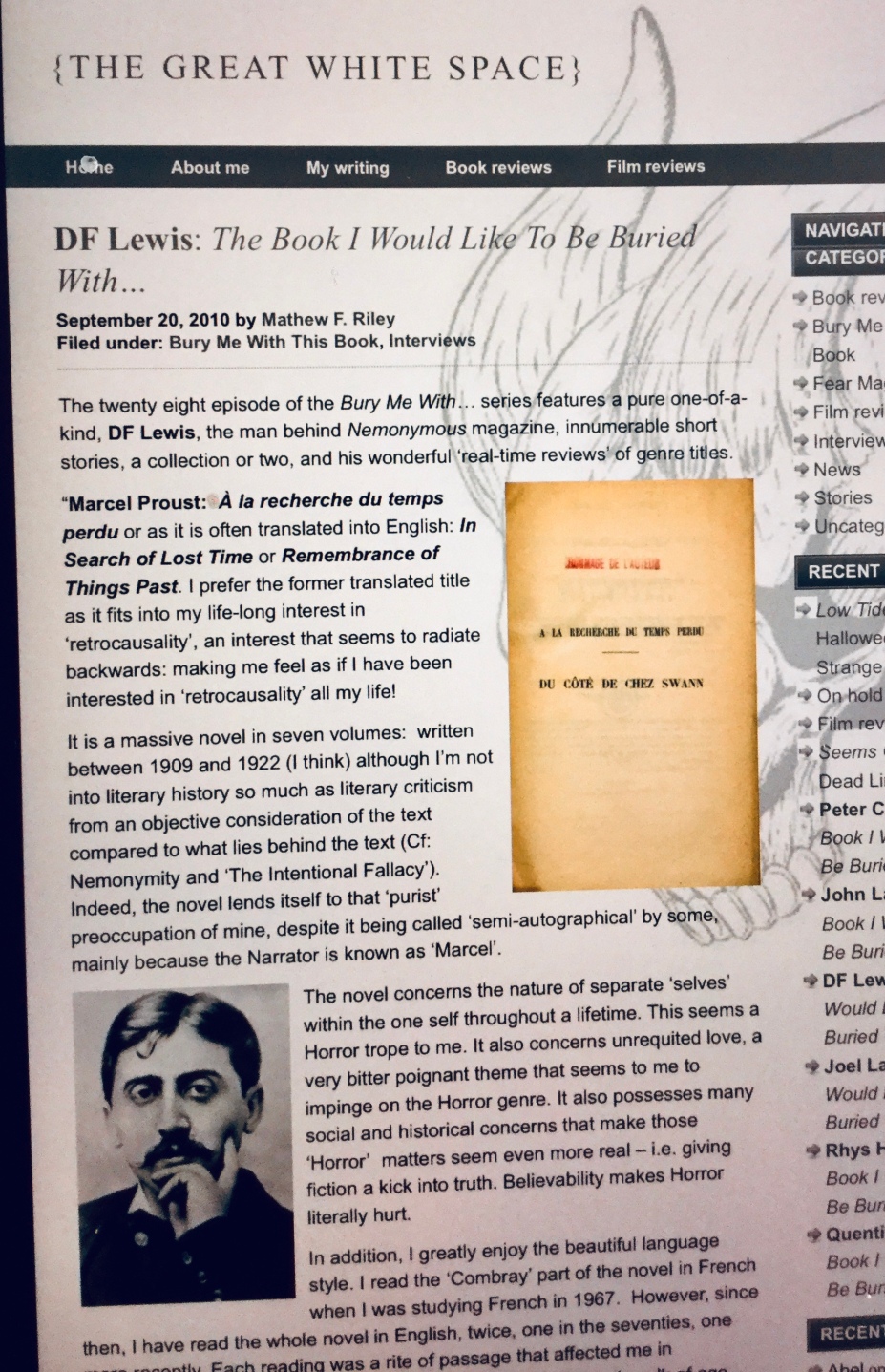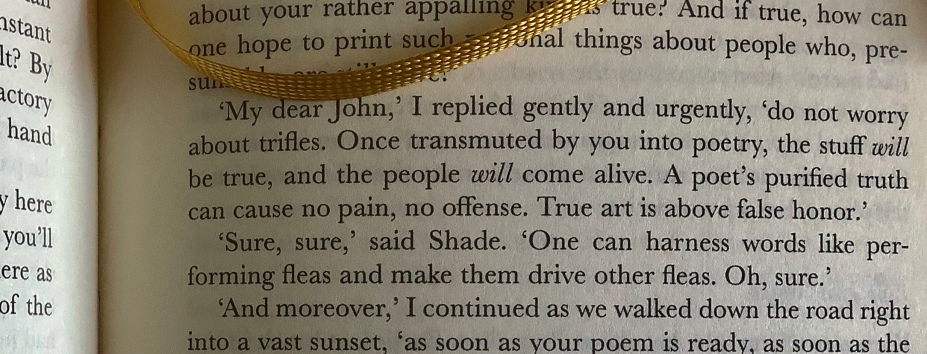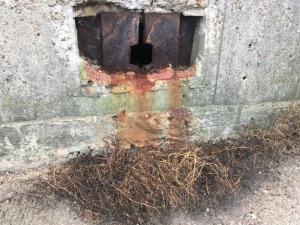Continued from here:
https://dflewisreviews.wordpress.com/2020/03/31/the-alexandrian-quartet-lawrence-durrell/
THE ALEXANDRIAN QUARTET by Lawrence Durrell (JUSTINE)
We are treated with the objects on the room’s walls surrounding Justine as if belonging to her; there is so much to savour and eke out in this book, each next passage ever seeming the best yet! Or is that my imagination?
“…the wise and sympathetic mask which has come to represent what she calls her Noble Self — adding sadly, with a smile of misgiving, ‘It does exist you know.’”
Or as Arnauti has her:
‘There is no pain compared to that of loving a woman who makes her body accessible to one and yet who is incapable of delivering her true self — because she does not know where to find it.’
“She told us of the mask, adding sadly: ‘It sounds cheap and rather theatrical, I know. I turn my face to the wall and talk to it.”
[…]
‘Justine and her city are alike in that they both have a strong flavour without having any real character.’
.
nullimmortalis
“We are never free, we writers.”
As if now to defend the very conceit of ‘character’ from human as city, or city as human (even a ‘sleeping city’ if there are today ever such), these passages from Pursewarden the writer need to be quoted in full, but that would be self-defeating their context, but they need to be read and reread several times. There is nothing else like it in literature.
Yet, having just now read the following amid such Pursewarden passages:
“You can’t rest ever, you can’t give over and begin to scry. You climb through the physical body, softly parting the muscle-schemes to admit you — muscle striped and unstriped; you examine the coil ignition of the guts in the abdomen, the sweetbreads, the liver choked with refuse like a sink-filter, the bag of urine, the red unbuckled belt of the intestines, the soft horny corridor of the oesophagus, the glottis with its mucilage softer than the pouch of a kangaroo. What do I mean? You are searching for a co-ordinating scheme,…”
…I did, as part of that ‘co-ordinating scheme’ (aka real-time gestalt), read synchronously some descriptions akin to that passage in Tem’s book (Chapter 28)
here a few days ago.
.
May 2, 2020 at 12:04 pm
nullimmortalis
May 3, 2020 at 11:40 am Edit
“These days were full of omens and warnings upon which our anxiety fed.”
The vision and thoughts (imputed or known) of Justine and myself about a figure we suppose to be Nessim at (as seen through) (with almost knocking on) our translucent outer-door seems emblematic of the social distancing by (still together) or of (now separate) close lovers today. And there is a recording of Nessim’s voice that we infer we hear through that door, presumably a prophecy of our equivalent FaceTiming today but with sporadic freezing or visual break-up?
“You see, he too had been dogging her steps through the pages of Arnauti.”
“He was now near to the man with the black patch over one eye — nearer than any of us had ever been.”
Alexandria is a dangerous place as evidenced by a vice consul’s wife being beheaded for her gold teeth smile! Despite this, I go with a talking water-melon to see what turns out to be a conspiratorial Scobie about a secret service and something about a war, a conspiracy featuring some characters I have narrated about here.
“‘That is where you come in’ he said with a grimace, ‘if you will come in, old man. We want you to break the code however long it takes you.’”
Yup yup, in a different guise, I have been so far trying to break the code of this book itself! I feel indeed, despite my past sporadic eye-patch, I AM the man for that very job.
.
nullimmortalis
Scobie’s account of his father …
“ ‘My father was an early pioneer of motoring, old man. Early road races, flat out at twenty miles an hour — all that sort of thing. He had his own landau. I can see him now sitting behind the wheel with a big moustache. Colonel Scobie, M.C. A Lancer he was. My mother sat beside him, old man. Never left his side, not even for road races. She used to act as his mechanic. The newspapers always had pictures of them at the start, sitting up there in bee-keeper’s veils — God knows why the pioneers always wore those huge veils. Dust, I suppose.
‘The veils had proved their undoing. Rounding a hairpin in the old London-Brighton road-race his father’s veil had been sucked into the front axle of the car they were driving. He had been dragged into the road, while his companion had careered on to smash headlong into a tree.
‘The only consolation is that that is just how he would have liked to go out. They were leading by quarter of a mile.’”
…is probably my favourite passage in this book so far. It reminds me of a character in one of my own stories – AFTER YOU: a work that has just reappeared in ‘Dabbling With Diabelli’ – wherein a man drove such an old jalopy along with his wife, a man suffering with ‘floaters’ in the eyes (the floaters akin to those ‘veils’! ) And one of his floaters was a face of a man with a moustache! You can’t make it up.
.
nullimmortalis
“Here and there where the swaying car threatens to sink its driving-wheels in the dune they always find purchase again on the bed of friable sandstone which forms the backbone to the whole promontory.”
And to the whole triangulated novel, an earth’s core risen to the surface and become all? A description of the literary gestalt, I maintain.
This is a quiet section where we learn more of Nessim, a mediaeval soothsayer, his synergy with an old man, and later Justine arrives in his oasis, an intrusion, and so do I. I, the new Arnauti, as part of a tessellation of human leitmotifs.
Read up to: “But here at least in the oasis one had the illusion of a beatitude which eluded one in town life.”
.
nullimmortalis
“It was as if in dying he had cast off from his earthly character, and taken on some of the grandiose proportions of his own writings, which swam more and more into view as the memory of the man itself faded. Death provided a new critical referent,…”
A writer in the hindsight of death. I wonder if one day there will be a camera obscura or telescope trained on where I had been before I died. They will certainly not find a copy of ‘King Lear’, or any other Shakespeare, for that matter, near where I had recently sat. This point is where I surely depart company with the Narrator. More likely for me to be a book by Marcel Proust, Lawrence Durrell, William Trevor or, even, Stephen King.
.
nullimmortalis
“Riches can buy riches, but poverty will scarcely buy one a leper’s kiss.”’
Today, riches and poverty and contagion are triangulating differently…as this books points of view do perhaps.
This view — of Cabal and spying, conspiracy, the then current world affairs, its cocktail parties, and gull shooting — is merely one such triangulation. But even points of view can become contagious without sufficient lockdown of our thoughts. Mine are arguably more promiscuous than most on these modern webs…? But with which code?
“I knew that she divined how fall of Melissa my mind was at the moment;”
I wonder if this typo is in all versions of the book, or are all the other versions with ‘full’ instead of ‘fall’ themselves the typos?
Meanwhile the passage below seems to summarise this book as well as, in hindsight, the process of gestalt real-time reviewing such an evocatively wordplaying, tactilely-texted and -textured, richly semanticised, generously triangulated, inwardly phoneticised, visually graphologised, hyper-imaginative city of literature…
“He would wake to see the towers and minarets printed on the exhausted, dust-powdered sky, and see as if en montage on them the giant footprints of the historical memory which lies behind the recollections of individual personality, its mentor and guide: indeed its inventor, since man is only an extension of the spirit of place.
These disturbed him for they were not at all the dreams of the night-hours. They overlapped reality and interrupted his waking mind as if the membrane of his consciousness had been suddenly torn in places to admit them.
Side by side with these giant constructions — Palladian galleries of images drawn from his reading and meditation on his own past and the city’s —“
.
“— for at each stage of development each man resumes the whole universe and makes it suitable to his own inner nature: while each thinker, each thought fecundates the whole universe anew.”
“The words of the old poet came into his mind, pressed down like the pedal of a piano, to boil and reverberate around the frail hope which the thought had raised from its dark sleep.”
The old poet: Cavafy?
Now a cross between Covfefe and Covid?
Cf “Cavé” in ‘Nemonymous Night’ and its recurrent Covered Market and CORE as the inner sun of the Earth. Its viral lucid vivid covid dreaming. Its SunNemo. Its “Only later does the book discover that the world is quite a different world from the one for which it has been prepared.” And its “The dream sickness – like a ‘flu pandemic – caused queues at doctors’ surgeries for tablets intended for an illness from which they didn’t know they suffered …”
“‘My problem’ he said to himself quietly, feeling his forehead to see if he had a fever… […]
At the same time, of course, he fully recognized that suffering, indeed all illness, was itself an acute form of self-importance,…”
Very appropriately, it seems, I have, in my narrating or reading such narration, halted here at least for the nonce:
“It was as if the action which Nessim had been contemplating grew with such infinite slowness, like a stalactite, that there was time for all this to fill the interval —“
.
“When there is something to hide one becomes an actor. It forces all the people round one to act as well.”
… as you do to someone who purports to tour this city as if it is a book, saying that the following scenes of humanity described in sex acts are as if HP Lovecraft took over the mind of Durrell or the narrator or me! And created Alexandria, the capital of Memory, into a many-backed beast called Azathoth. It is THAT powerful. Beyond even amorphousness.
Read up to:
‘If this is true you are only taking advantage of an illness in loving her,’









JOSEPH ADDISON
And of other creatures, too?
THE WASH by Daniel Gothard
“He had ignored the onset and speedy escalation of an Addisonian crisis, perhaps lying to himself it was a nasty viral infection.”
Let loose by the freehold author, like God with His plagues, I sense, the leasehold narrator, with his own sense of constructive cruelty, refers in that infectious quote to his now dead elder brother, Marius, who, together, years ago, when they were 11 and 13, spent some time with their grandparents in Skegness without their own ill-matched parents. We gradually gather that coming out in the text’s “wash”, if not in nearby King John’s capitalised Wash, was the concept of their fateful collection gathered from corpses (some become corpses ab initio by instigation of Marius)… words as living things batted like balls on a beach to see if they can have their edges crimped. A fable for our times, still evolving, playing it by each ear…
“Take Marius.”
JOSEPH ADDISON
Oh! Incredibly, in view of the referee’s whistle, my above photo came up earlier today on Facebook memories from exactly four years ago! I have now ‘distorted’ it as Gayle does to her own photos that she sells and puts in exhibitions …
TRICK OF THE LIGHT by Andrew Humphrey
“Easy walk. There’s a pub, a church. What more does one need?”
Gayle and her narrator husband are staying in a lonely cottage near Southwold, Suffolk, mainly for Gayle to gather more material for a photo exhibition. They have a chequered marital backstory, or at least he does. And he loves M.R. James stories. Well, who doesn’t? And this itself is indeed well-characterised amid an engagingly atmospheric landscape, with knots of pigs and caramel cliffs in its genius loci, as well as that pub and church. With a unique flavour along with — as well as beyond — James as frissons of melting identity. A summoning beyond weak whisky’s colour.
I, too, much prefer Michael Hordern to John Hurt.
“Back in the living room I drank wine and read whilst the darkness gathered outside.”
“I like drinking red wine until the edges of the world blur…”
My previous reviews of Andrew Humphrey: https://dflewisreviews.wordpress.com/tag/andrew-humphrey/ and https://nullimmortalis.wordpress.com/2010/08/18/the-alsiso-project/
He wrote something called ALSISO as well as ALISON. Nothing about Addison, though!
HIDE by Roberta Dewa
“piece by piece I go”
…as ever in real-time, by the strict rule that my reviews are those based on my first reading of any work. But I can already see this work probably needs several readings, free verse with bird names and engaging evocations, free verse as prose, with arguably complex backstories of childhood and beyond as we follow the author as she conjures a narrative point of view of ‘she’ in interface with ‘you’ and ‘he’, in visits to a bird hide and reading the sightings board in that hide where another has left impressions of birds or other poetic emotions of ‘I’ and another ‘you’ added within this gestalt, plus a school’s salacious bike shed and today a bike, and a memory of a house, a possible marriage and a new relationship or not. All overlapping or potentially dove-tailed. Notwithstanding the ”nemo hiding here”. That made oblique sense of it all for me. Worth pursuing.
“, geese out early honk across the thin wash sky”
― Patricia Highsmith, The Talented Mr. Ripley
Anticipation as a pre-cursor or do I mean pre-curser for…
REGRET
by Robert Stone
“There had been that terrible cough.”
The Higher Smiths as a variation upon Keeping Up With the Joneses, as we used to say in Middle-Class England when I was much younger, with, inter alia, lawn-edgers and sprinklers. And this is the story of Paul whose wife Fay died of that cough, naturally, surprisingly out of character vis à vis her bodily health. He is now living opposite Tom and coincidentally he is reading of another Tom in a Highsmith book, and Tom’s tantalising white-swimsuited wife Hannah happens to be reading a book by the same author. But, of course, there are no such things as coincidences in MY reviews, and please don’t dare tell me otherwise, but there ARE always cross-references towards an accretive gestalt, one which here is a dangerous experimentation with aligned opposites, scryable or scythable wives (even if one of them is dead), burst bladders and hoses, exploded cookers and arguably clitoral fuse-boxes. Draining a boil is said to be like the pleasure of clearing drains (the boil bit being remarkably apposite for me today! – don’t ask!) And one lacy white bra left as a prop, perhaps even more powerful, if softer, than all the other weapons. Was Paul violent because he wanted to be one of Highsmith’s stereotypes as denigrated by Tom or he wanted to straddle the road, straddle being big on both ‘details’ and ‘big pictures’? The timing of a piss as a sort of curse. Defiant in sharpening one’s critical edge with lethal exponentiality. Books leak into each other, too. I have now done with edging. However you might interpret my review into favourable or unfavourable, it could, I admit, have been more acute and I anticipate understanding it better upon a second experience of it. Whatever else, it made me enjoy saying things about it. And that’s half the interactive battle. An official passport for better understanding, pending further inspection.
“Now everything had stopped.”